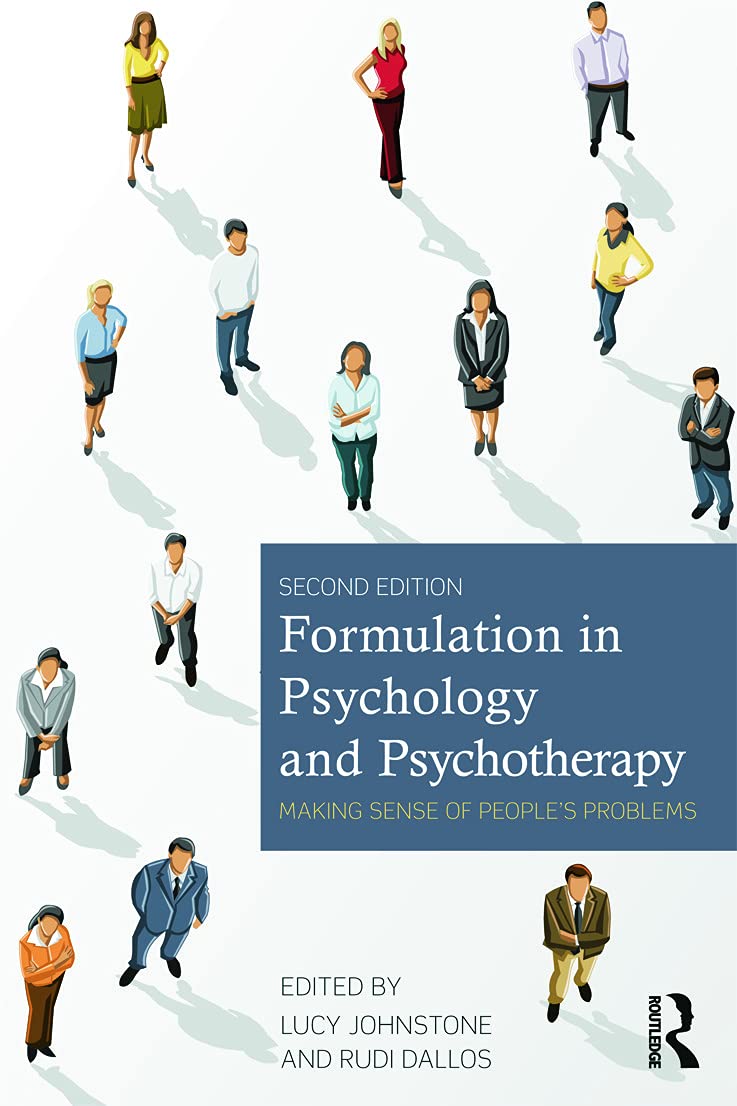About this deal
The guidelines have been developed for the Division of Clinical Psychology to promote best practice in psychological formulation, which is a core competence for clinical psychologists. Perpetuating factors such as mechanisms which keep a problem going or unintended consequences of an attempt to cope with the problem
The book sees formulation as a dynamic process which explores personal meaning collaboratively and reflectively, taking account of relational and social contexts. Two case studies, one adult and one child, illustrate the use of formulation from the perspectives of expert clinicians from six different theoretical positions. The book encourages the reader to take a constructively critical perspective on the many philosophical, professional and ethical debates raised by the process of formulating people's problems. Among the issues explored are:The guidance is intended to be of benefit to clinical psychologists and clinical psychology training courses. Briefer versions suitable for other stakeholders (e.g. commissioners, service users and carers) are currently being developed. To save this article to your Dropbox account, please select one or more formats and confirm that you agree to abide by our usage policies. If this is the first time you used this feature, you will be asked to authorise Cambridge Core to connect with your Dropbox account. Its success is uneven, however. Some chapters, such as those on cognitive–behavioural therapy and systemic family work, are exemplary introductions to formulation within these models. Other authors are diverted into spending unnecessary words on outlining the principles of their model at the expense of its approach to formulation. Often, little attention is paid to how a formulation would be used to facilitate treatment within a particular model, in favour of its purely descriptive functions. The book also makes surprisingly few references to the considerable research literature on formulation. Several well-known, research-based systems are ignored altogether, as are two major international attempts to systematise psychodynamic formulation. Please list any fees and grants from, employment by, consultancy for, shared ownership in or any close relationship with, at any time over the preceding 36 months, any organisation whose interests may be affected by the publication of the response. Please also list any non-financial associations or interests (personal, professional, political, institutional, religious or other) that a reasonable reader would want to know about in relation to the submitted work. This pertains to all the authors of the piece, their spouses or partners. Dr. Els van Ooijen, co-author of Integrative Counselling and Psychotherapy: arelational approach, Therapy Today
Formulation is attracting an increasing amount of interest in the fields of psychology, psychiatry, psychotherapy and counselling. Drawing on psychological theory, it attempts to examine a client or family's problems in terms of how they arose and what may currently be holding these in place. It synthesises this information and explanatory ideas into 'working hypotheses', which are then used to suggest appropriate and effective ways of working to relieve the problems. It can also be described as the key way of relating theory to practice in clinical work. A literature review exploring the efficacy of case formulations in clinical practice. What are the themes and pertinent issues? | the Cognitive Behaviour Therapist | Cambridge Core Kuyken, W., Padesky, C. A., & Dudley, R. (2008). Collaborative case conceptualization: Working effectively with clients in cognitive-behavioral therapy. Guilford Press. Formulation in Psychology and Psychotherapy places this growing interest in formulation in a clinical and historical context. It introduces the reader to the theory and practice of formulation through the discussion of two clients (one adult and one child focused problem), whose problems are formulated from the perspective of 5 different therapeutic traditions: systemic, psychodynamic, community, cognitive- behavioural and social constructionist/narrative. It looks at the growing trend for formulations that draw on two or more therapeutic models and includes two chapters dealing with integrative formulation. It offers some creative suggestions for how this can be carried out in a way that is theoretically coherent and clinically effective. The authors also explore the important issue of formulation as a collaborative activity, and consider the ethics of formulation. The final chapter takes a critical overview of the main research, controversies and debates in the area, and gives a guide for using, developing, and researching formulation in a way that maximises its strengths while being aware of its limitations. Formulation as intervention: case report and client experience of formulating in therapy | the Cognitive Behaviour Therapist | Cambridge Core
Help and support
By using this service, you agree that you will only keep content for personal use, and will not openly distribute them via Dropbox, Google Drive or other file sharing services Johnstone, L., & Dallos, R. (2013). Formulation in psychology and psychotherapy: Making sense of people's problems. Routledge.
Related:
 Great Deal
Great Deal 